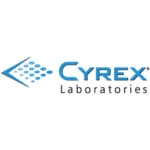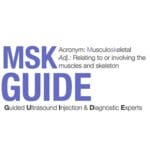Stem Cell Therapy Frequently Asked Questions
Whatever health obstacles you face, our cutting-edge stem cell treatments aim to reduce discomfort, support healing, and restore function.
Want to know if Stem Cell Therapy will work for you?
Take our short “Treatment Success Survey” and find out.
Dr. Jane Hendricks
Three Questions To Ask When Calling Stem Cell Clinics
Stem Cell Therapy Frequently Asked Questions
What is Regeneration?
Regeneration is the process of renewal and restoration, whereby diseased or older tissue is replaced by healthy new tissue. With the help of stem cells, patients can now experience a healing of chronic disease, that until now was impossible.
What can Stem Cells Do?
Build, repair and replace diseased tissue with healthy new tissue. Stem cells have the ability to replicate and differentiate into different tissues, where there is tissue damage.
They help modulate the immune response, thus reducing inflammation.
Stem cells respond to paracrine signaling from the body cells and migrate to the areas of injury.
MSC’s (mesenchymal stem cells) also have an anti-microbial effect against acute and chronic infections.
How are Stem Cells Administered?
For systemic conditions such as autoimmune disease, an infusion is given. For isolated joint pain, such as knee arthritis a direct injection is given in the joint
How Many Stem Cells Do I Need?
The number of stem cells for IV use depends on the medical condition being treated. During your consultation, the doctor will determine the appropriate number that will provide the best results. Clinics using expanded (lab produeced) stem cells will say you need a large number. This is in part due to the loss in proliferation ability of the cultured cells. However, too many stem cells at one time may cause a cytokine reaction, in addition to lower overall efficacy.
For a joint injection, 15-30 million MSCs are given, depending on how extensive the tissue damage is. When going with a low count, you may have to return a few months later for a repeat treatment.
Expanded Vs Non-expanded Stem Cells
The process of expanding stem cells is illegal in the U.S. due to the regulation that requires minimal manipulation. Expanded MSCs have been cultured in a lab and are not the original stem cells from the umbilical cord tissue. The regulation exists due to the risk of contamination during the culture process. The risk for infection is much higher when receiving expanded stem cells vs non-expanded stem cells. The benefit of expanding stem cells is that the clinic or lab is able to increase their profit margin. The umbilical cord tissue used to culture the stem cells may be several years old. In addition to the risk of infection, studies show that there is a loss in the ability of the MSCs to proliferate and differentiate. In simple terms, the cultured lab made MSCs are less potent. There is also risk for genetic mutations which is unavoidable. These genetic mutations increase the risk of the patient developing cancer.
Non expanded stem cells are the original cells isolated from the umbilical cord tissue. The umbilical cord tissue in our case is harvested just 2-4 months prior to the treatment. Because they’ve been minimally manipulated according to the FDA regulations, the stem cells we use are much more potent than the artificially grown MSCs.
How Long Does It Take For The Treatment To Work?
Whether it’s a joint injection or an IV, the doctor follows your progress for six full months. The MSCs first go through several division cycles, respond to cytokine signaling and begin secreting their exosomes which go to work in renewing and repairing damaged tissue. This takes time. Depending on your overall health and the stage of disease pain, results vary widely from patient to patient. While it takes 6 to 8 months to realize the full outcome of one treatment, most of our patients report significant relief in less than a month! Dietary and supplement recommendations are also provided which increases the performance of the stem cells. In the case of joint injections, the doctor is very knowledgeable in physiotherapy and will recommend certain exercises, or refer you to some videos for guidance.
What our Patients can
expect from us

Personalized treatment plans tailored to individual needs and health goals.

Comprehensive pre-treatment evaluation and ongoing progress monitoring

Access to cutting-edge regenerative medicine therapies
Start Your Personal Health Journey Now

#1. Discover Your Potential
Use our short survey to explore whether stem cell therapy is right for you.
Our carefully crafted questions will help us understand your unique situation and determine if you’re a good candidate for our treatments.

#2. Personalized Consultation
Schedule a one-on-one consultation with the doctor virtually or in person.
She’ll review your health questionnaire, discuss your health goals, and create a tailored treatment plan designed specifically for you.

#3. Begin Your Transformation
Start your personalized stem cell therapy program.
Our state-of-the-art treatments, combined with ongoing support and monitoring, will guide you on your journey to improved health and vitality.

#4. Embrace Your Renewed Health
Experience the benefits of your stem cell therapy. With the doctor’s one on one guidance, you’ll learn how to maintain your improved well-being, return to activities you love, and enjoy a higher quality of life.
Your transformation doesn’t end with treatment – it’s just the beginning of your revitalized future.






